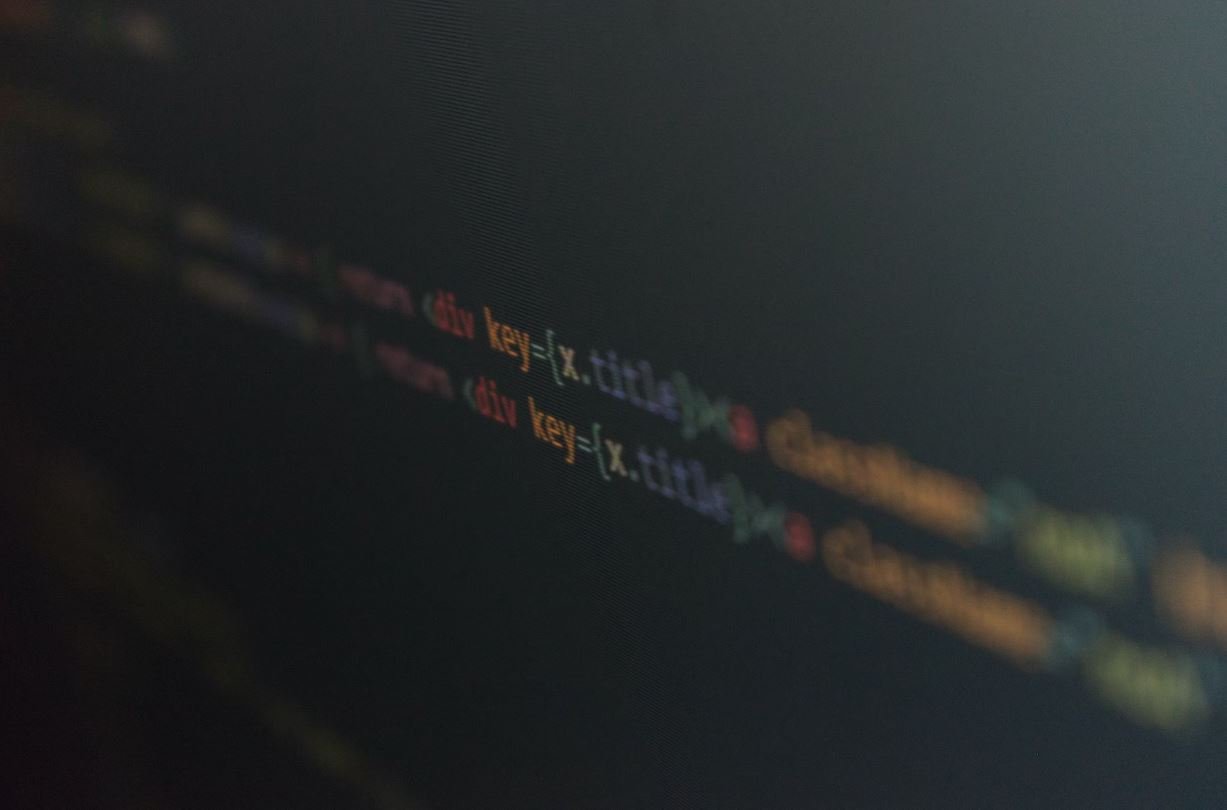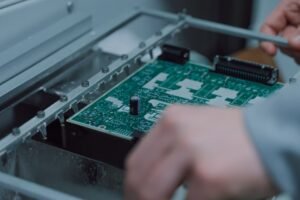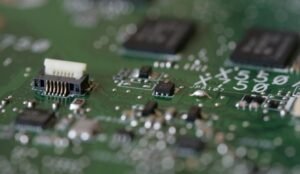Will AI Replace Music Producers?
Introduction
Artificial Intelligence (AI) has been revolutionizing various industries, and the question arises: Will AI eventually replace music producers? The role of music producers is vital in the creation and refinement of music, but with advancements in AI technology, some argue that it could soon take over. In this article, we will explore the potential impact of AI on music production.
Key Takeaways
- AI technology has the potential to disrupt the traditional music production process.
- AI can assist music producers in generating new ideas and optimizing the production workflow.
- Human creativity, emotion, and intuition are difficult to replicate, giving music producers an edge over AI.
- Collaboration between AI and music producers can lead to innovative and unique music creations.
The Role of Music Producers
Music producers play a crucial role in the entire music production process. They work closely with artists and musicians, making creative decisions and shaping the overall sound of a track. Their expertise ranges from arranging and composing music to recording, mixing, and mastering. *AI technology has the potential to augment the capabilities of music producers, offering new tools and assistance in various aspects of production.*
AI in Music Production
AI technologies, such as machine learning and deep neural networks, have made significant advancements in recent years. These advancements have opened the door for AI to penetrate the music industry. *One interesting application of AI in music production is the ability to analyze vast amounts of music data to identify patterns and trends, helping music producers make informed decisions.*
Benefits of AI in Music Production
AI can bring several benefits to music production. One of the most significant advantages is its ability to assist music producers in generating new ideas. Through AI algorithms, music producers can explore novel chord progressions, melodies, and rhythms. *AI can also optimize the production workflow by automating repetitive tasks, allowing producers to focus more on creative aspects.*
Collaboration between AI and Music Producers
Rather than replacing music producers entirely, there is a growing trend towards collaboration between AI and human producers. AI tools can act as creative partners, providing new insights and inspiration. *By combining the unique qualities of human creativity and AI’s analytical capabilities, music producers can create innovative and distinctive music compositions.*
Data Points
| Statistics | Year |
|---|---|
| AI music market size | 2020: $201 million |
| Expected AI music market growth rate | 2021-2025: 26.5% CAGR |
Challenges and Limitations of AI in Music Production
- AI struggles to fully grasp human emotions and the subjective nature of music.
- It is challenging for AI to understand and reproduce the intricate nuances of musicality.
- AI lacks the ability to actively collaborate and improvise during the creative process.
- The reliance on AI can potentially lead to a standardized and formulaic approach to music production.
The Future of Music Production
While AI poses certain capabilities and advancements, it is unlikely that it will replace music producers entirely. Human creativity, emotion, and intuition are difficult to replicate, giving music producers an edge in crafting unique and authentic music. *The future of music production lies in a harmonious collaboration between AI tools and human producers, leading to groundbreaking innovation and exciting sonic possibilities.*

Common Misconceptions
Misconception 1: AI technology will completely replace music producers
One common misconception surrounding AI technology is that it will completely replace music producers in the future. However, this is not entirely accurate as AI and music producers can actually work together harmoniously.
- AI can assist in generating musical ideas and inspiration for producers.
- Music producers can utilize AI tools to enhance their creative process.
- Human touch and creativity are still crucial in music production that AI cannot fully replicate.
Misconception 2: AI-produced music lacks originality and emotion
Another misconception is that AI-produced music lacks originality and emotion, leading to the belief that it will never truly replace music producers. However, AI technology has come a long way and is now capable of creating emotionally evocative compositions.
- AI systems can analyze vast amounts of existing music to generate new, innovative compositions.
- AI algorithms can learn and mimic the nuances of human emotion and expression in music.
- With the right input and training, AI can create music that resonates with listeners on an emotional level.
Misconception 3: AI technology will render human producers obsolete
Some people believe that AI technology will render human music producers obsolete, leaving them without a role in the industry. However, music production involves more than just creating sounds and melodies.
- Human producers have the ability to understand and interpret the emotions and desires of artists.
- Producers provide valuable insights, guidance, and creative direction to artists throughout the production process.
- Collaborations between AI tools and producers can lead to innovative and unique musical outputs.
Misconception 4: AI technology lacks the ability to innovate and create unique music
Some argue that AI technology lacks the ability to innovate and create truly unique music, making it incapable of replacing music producers in the industry. However, AI has already demonstrated its capability in generating new and fresh musical compositions.
- AI algorithms can combine elements from various genres, creating hybrid and experimental sounds.
- With AI, producers can explore and experiment with unconventional musical ideas that may have not been possible before.
- AI can provide music producers with a fresh perspective and new directions for their creative projects.
Misconception 5: AI-generated music will make the work of music producers irrelevant
Lastly, a common misconception is that AI-generated music will make the work of music producers irrelevant, taking away the need for human intervention in the creative process. However, music production is a collaborative process that involves much more than generating musical compositions.
- Producers bring a unique and individualized perspective to the production process.
- Producers are skilled in shaping and molding raw musical ideas into a coherent and impactful final product.
- AI-generated music can serve as a starting point for producers to build upon and transform into a unique piece.

Will AI Replace Music Producers?
In recent years, artificial intelligence (AI) has become increasingly prevalent in various industries, including music production. With AI technology advancing rapidly, many speculate whether music producers will eventually be replaced by AI. Here, we examine 10 interesting aspects related to this topic:
The Rise of AI in Music Production
As AI technology continues to advance, its presence in the music production process is becoming more pronounced. AI systems can now generate melodies, harmonies, and even lyrics, revolutionizing the composition phase of music production.
AI’s Ability to Recognize Emotions
One of the key advantages of using AI in music production is its ability to recognize and understand human emotions. Through analyzing vast amounts of emotional data, AI algorithms can determine which musical elements resonate with listeners on a deeper level.
The Impact of AI on Creativity
While the use of AI in music production has proven to be a powerful tool, some argue that it may hinder creative expression. Many producers worry that relying too heavily on AI-generated content may stifle originality and result in a homogenized music industry.
Quality of AI-Produced Music
AI-generated music has made significant strides in terms of quality and authenticity. In various blind tests, listeners have found it difficult to distinguish between AI-generated compositions and those produced by humans, showcasing the impressive abilities of AI algorithms.
Cost-Efficiency of AI
Implementing AI technology in music production can be cost-effective for artists and record labels alike. AI systems can compose and produce music at a fraction of the cost it would take to hire a professional producer, potentially leveling the playing field for emerging artists.
AI’s Impact on Employment
As AI technology continues to evolve, concerns arise about its potential impact on employment within the music production industry. While some fear that AI could replace human producers, others argue that it will primarily augment their capabilities, leading to new job opportunities.
The Role of Human Producers
Despite the advancements in AI-generated music, human producers still possess unique skills and artistic sensibilities that AI algorithms cannot fully replicate. Many artists value the collaborative nature and emotional connection that human producers bring to the table.
Limitations of AI in Music Production
AI systems, while powerful, have certain limitations. AI algorithms often struggle with infusing music with nuanced emotions and complex artistic concepts. Additionally, AI-generated music may lack the inherent imperfections that contribute to its beauty and authenticity.
AI’s Adaptability to Different Genres
AI algorithms have proven to be adaptable across various music genres, showcasing their versatility. Whether it’s classical symphonies, pop hits, or experimental electronic music, AI technology can generate compositions that cater to diverse musical preferences.
The Future of Music Production
While AI has undeniably transformed music production, it is unlikely to fully replace human producers in the foreseeable future. Instead, it is more likely that AI will continue to be integrated into the creative process, working alongside human producers to push the boundaries of music creation.
In conclusion, the rise of AI in music production presents both opportunities and challenges. AI technology has the potential to optimize efficiency and accessibility, but it also raises concerns about creative autonomy and the human touch in music. Nevertheless, the future of music production is likely to entail a harmonious collaboration between AI and human producers, resulting in new and exciting sonic possibilities.
Will AI Replace Music Producers?
1. What is AI technology?
AI, or artificial intelligence, refers to the development of computer systems capable of performing tasks that traditionally require human intelligence. It involves simulating human-like intelligence through algorithms and machine learning techniques.
2. How is AI being used in music production?
AI is being used in various ways within the music production industry. For instance, AI algorithms can generate melodies and harmonies, create unique sounds and textures, assist in audio mixing and mastering, and analyze music data to provide insights for creative decision-making.
3. Can AI completely replace music producers?
While AI technology has advanced significantly, it is unlikely to completely replace music producers. AI tools can assist and enhance the creative process, but they lack the human touch, emotions, and subjective decision-making abilities that producers bring to the table. Music production is a collaborative and creative field that often requires human creativity and intuition.
4. Will AI impact the role of music producers?
Yes, AI will definitely impact the role of music producers. AI tools and technologies can automate certain tasks, streamline workflows, and provide new creative possibilities. This means that music producers will need to adapt to the changing technological landscape and learn how to effectively integrate AI into their production processes.
5. What are the benefits of using AI in music production?
Using AI in music production can offer several benefits. It can help save time and effort by automating repetitive tasks, accelerate the creative process by generating musical ideas and soundscapes, provide new tools and techniques for experimentation and innovation, and offer insights and analytics for better decision-making.
6. Are there any limitations to AI in music production?
Yes, there are limitations to AI in music production. While AI algorithms can generate music, they do not possess true emotions, creativity, or the ability to express human experiences. AI-produced music may lack the depth, uniqueness, and authenticity that a human producer can provide. Additionally, AI tools require proper training and guidance from skilled professionals to achieve satisfactory results.
7. How can AI and music producers work together?
The collaboration between AI and music producers can be highly beneficial. Producers can leverage AI tools to augment their creativity, speed up experimentation, and explore new sounds and musical directions. By combining human expertise and intuition with AI-generated possibilities, music producers can achieve innovative and unique outcomes.
8. Will AI eliminate job opportunities for music producers?
While AI may automate certain tasks, it is unlikely to eliminate job opportunities for music producers entirely. The role of music producers expands beyond technical tasks to include artistic direction, collaboration, and overall music vision. AI tools can enhance productivity and assist producers, but ultimately, music production requires the touch of a skilled human professional.
9. How can music producers stay relevant in the AI era?
To stay relevant in the AI era, music producers should embrace new technologies and continuously update their skills. This involves learning to work with AI tools, understanding how to integrate them effectively into the production process, and focusing on developing unique artistic perspectives that cannot be replicated by machines.
10. What is the future outlook for music production with AI?
The future outlook for music production with AI is promising. As AI technology continues to advance, we can expect more sophisticated AI tools that better understand human preferences and musical nuances. The integration of AI into music production workflows will likely become more seamless, leading to novel creative possibilities and enhanced efficiency.




